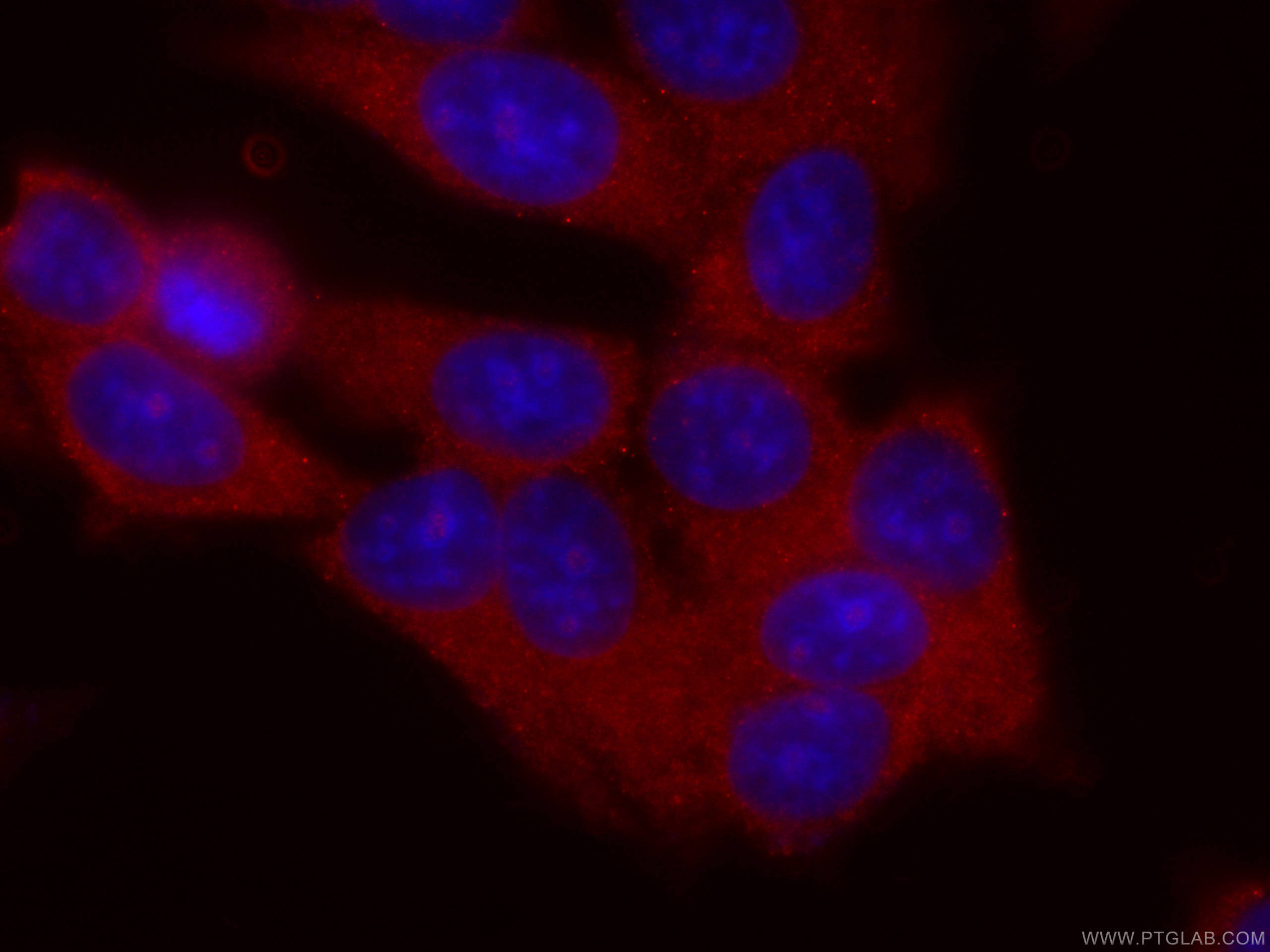验证数据展示
经过测试的应用
| Positive IF/ICC detected in | MCF-7 cells |
推荐稀释比
| 应用 | 推荐稀释比 |
|---|---|
| Immunofluorescence (IF)/ICC | IF/ICC : 1:50-1:200 |
| It is recommended that this reagent should be titrated in each testing system to obtain optimal results. | |
| Sample-dependent, Check data in validation data gallery. | |
产品信息
CL594-60336 targets BRINP1 in IF/ICC applications and shows reactivity with human, pig, mouse samples.
| 经测试应用 | IF/ICC Application Description |
| 经测试反应性 | human, pig, mouse |
| 免疫原 |
CatNo: Ag6588 Product name: Recombinant human DBC1 protein Source: e coli.-derived, PET28a Tag: 6*His Domain: 1-306 aa of BC021560 Sequence: MNWRFVELLYFLFIWGRISVQPSHQEPAGTDQHVSKEFDWLISDRGPFHHSRSYLSFVERHRQGFTTRYKIYREFARWKVRNTAIERRDLVRHPVPLMPEFQRSIRLLGRRPTTQQFIDTIIKKYGTHLLISATLGGEEALTMYMDKSRLDRKSGNATQSVEALHQLASSYFVDRDGTMRRLHEIQISTGAIKVTETRTGPLGCNSYDNLDSVSSVLLQSTESKLHLQGLQIIFPQYLQEKFVQSALSYIMCNGEGEYLCQNSQCRCQCAEEFPQCNCPITDIQIMEYTLANMAKSWAEAYKDLEN 种属同源性预测 |
| 宿主/亚型 | Mouse / IgG2c |
| 抗体类别 | Monoclonal |
| 产品类型 | Antibody |
| 全称 | deleted in bladder cancer 1 |
| 别名 | DBC1, DBCCR1, deleted in bladder cancer 1, FAM5A, Protein FAM5A |
| 计算分子量 | 761 aa, 88 kDa |
| 观测分子量 | 88 kDa |
| GenBank蛋白编号 | BC021560 |
| 基因名称 | BRINP1 |
| Gene ID (NCBI) | 1620 |
| RRID | AB_2883467 |
| 偶联类型 | CoraLite®594 Fluorescent Dye |
| 最大激发/发射波长 | 588 nm / 604 nm |
| 形式 | Liquid |
| 纯化方式 | Protein A purification |
| UNIPROT ID | O60477 |
| 储存缓冲液 | PBS with 50% glycerol, 0.05% Proclin300, 0.5% BSA, pH 7.3. |
| 储存条件 | Store at -20°C. Avoid exposure to light. Stable for one year after shipment. Aliquoting is unnecessary for -20oC storage. |
背景介绍
BRINP1, also known as DBC1 and FAM5A, inhibits cell proliferation by negative regulation of the G1/S transition. It mediates cell death which is not of the classical apoptotic type and regulates expression of components of the plasminogen pathway.
实验方案
| Product Specific Protocols | |
|---|---|
| IF protocol for CL594 BRINP1 antibody CL594-60336 | Download protocol |
| Standard Protocols | |
|---|---|
| Click here to view our Standard Protocols |


